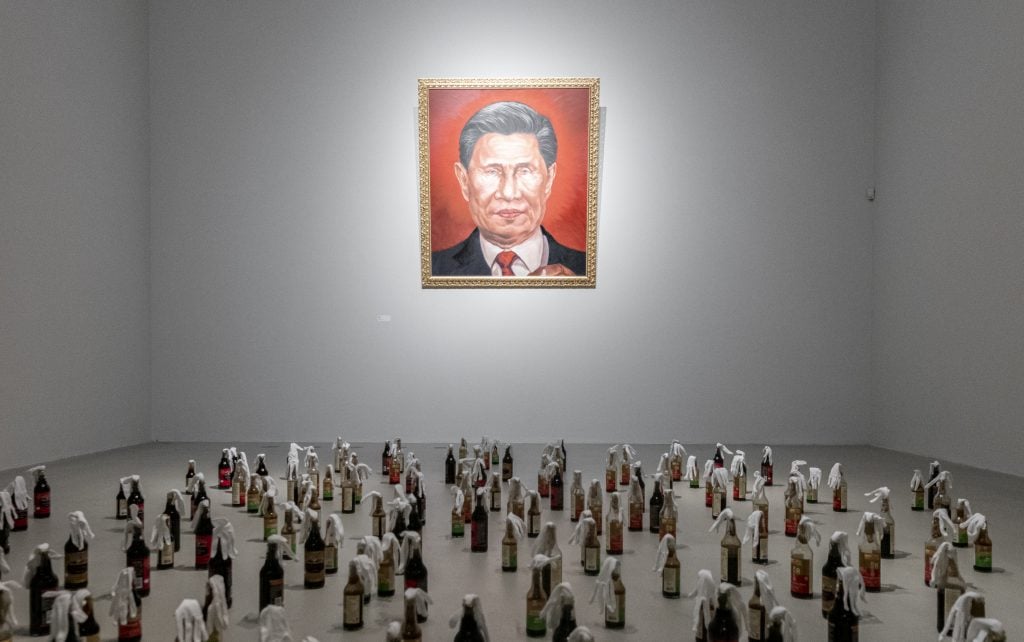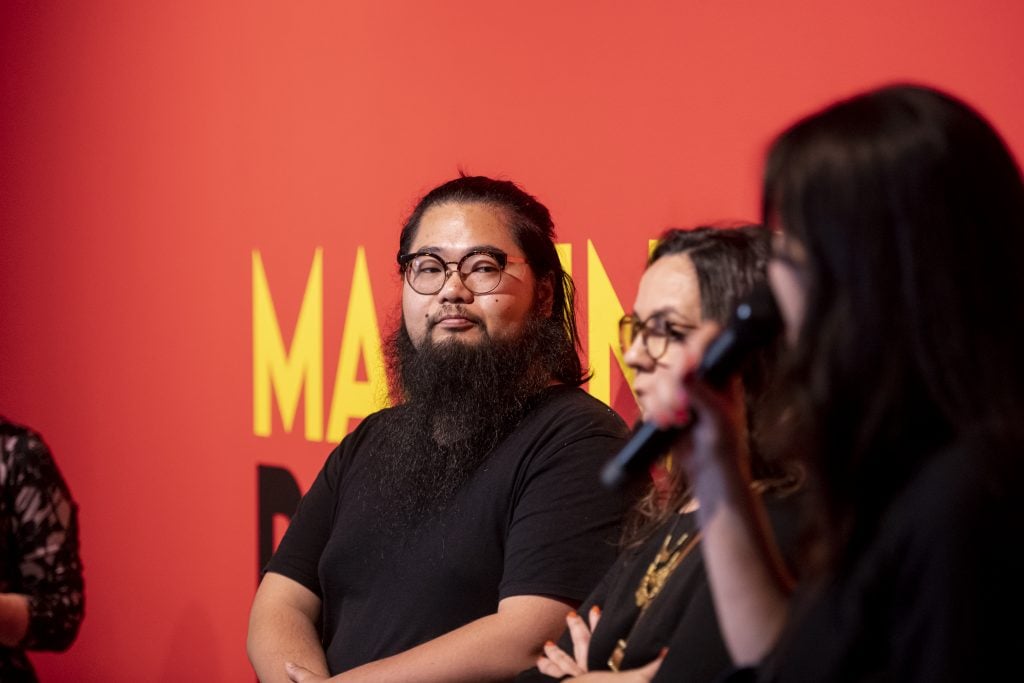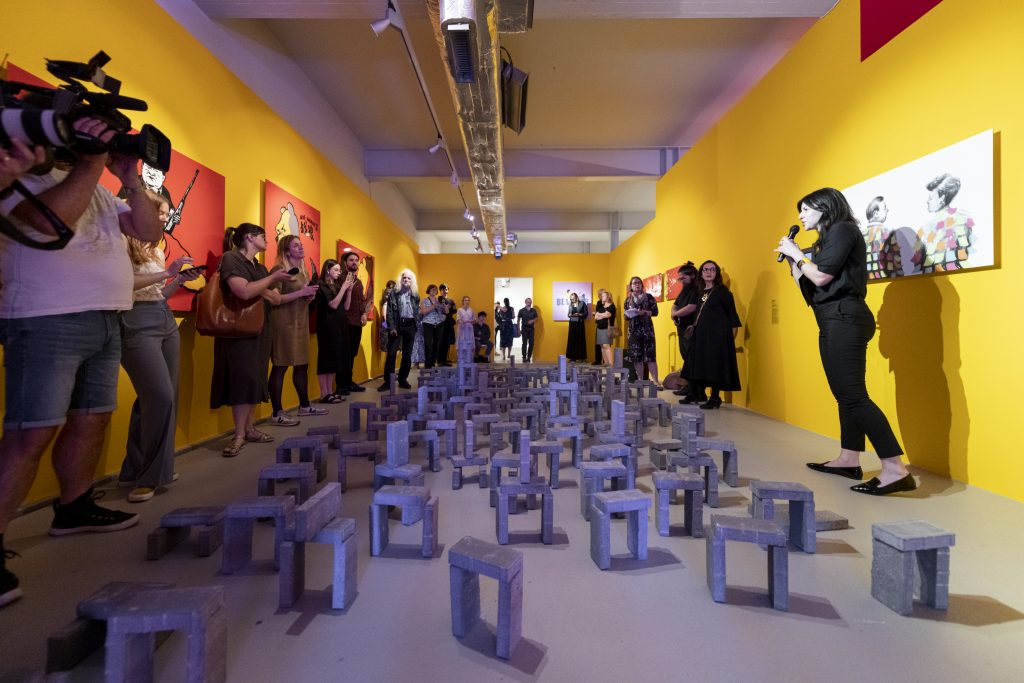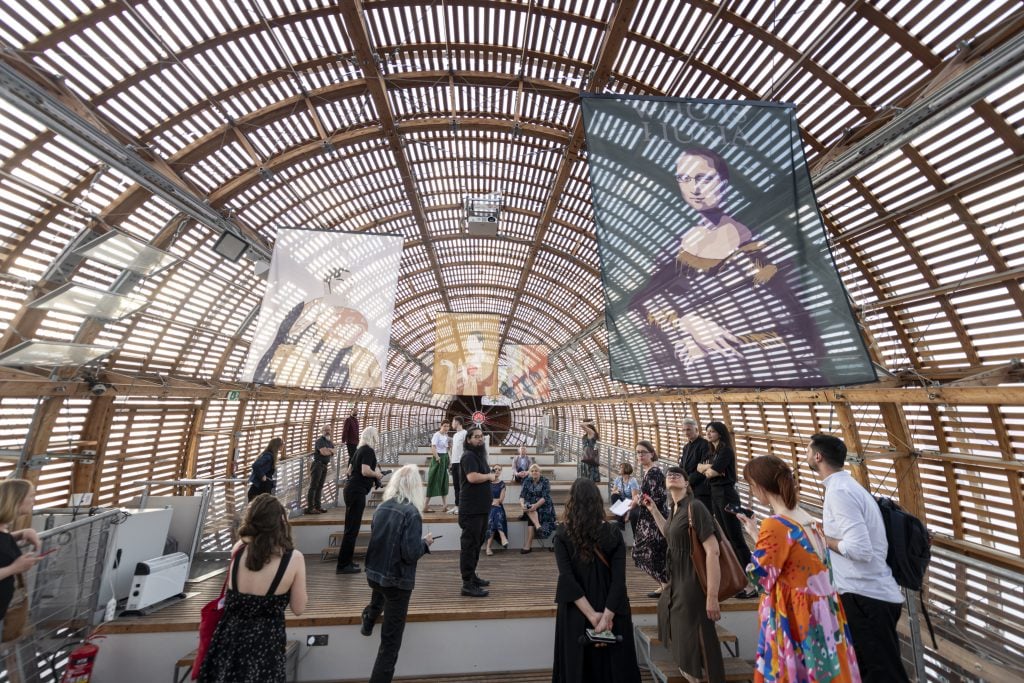Politics
China Tried to Shut Down Dissident Artist Badiucao’s Show in Prague. It Only Made Him More Famous
Have China's attempts to silence dissident voices abroad backfired?

Have China's attempts to silence dissident voices abroad backfired?

Vivienne Chow

Despite Beijing’s calls to shut down a show of work by Chinese dissident artist Badiucao, the DOX Center for Contemporary Art in Prague went ahead with the politically charged exhibition anyway.
Titled “MADe in China,” the exhibition is a continuation of Badiucao’s previous solo show in Brescia, Italy, which Beijing also tried to cancel last year. It chronicles the artist’s criticisms of China’s political oppression, including the censorship of citizens during the Covid-19 pandemic, the government’s alleged human rights violations against the Uyghur population in Xinjiang, and the 2019 Hong Kong protests.

Badiucao at the opening of his exhibition “MADe in China” at DOX Prague. Courtesy DOX Centre for Contemporary Art, Prague. Photo: Jan Slavík, © DOX.
The show also features new works created in response to Russia’s invasion of Ukraine, including a painting that fuses the faces of Chinese president Xi Jinping and his ally, Russian president Vladimir Putin. China has previously said its relationship with Russia has “no limits,” and it has been a supporter of Russia throughout its invasion of Ukraine
On Wednesday, the day before the exhibition’s opening, DOX received a call from the Chinese embassy in Prague, instructing them to call off the show.
“The embassy ‘hoped we will not organize’ the exhibition, which will harm the mutual relations between the two countries,” a DOX spokesperson told Artnet News.
But DOX did not back down. “We are proud to present Badiucao’s work. DOX is a private and independent institution, an environment where we value our intellectual freedoms. We will certainly not respond to this or any other pressures, which we consider utterly unacceptable,” said Michaela Šilpochová, the artistic director of DOX and one of the show’s curators.

Badiucao’s installation Pavement Stone, inspired by the road blocks built by protesters during the Hong Kong protests in 2019. Courtesy DOX Centre for Contemporary Art, Prague. Photo: Jan Slavík, © DOX.
Badiucao, who is in Prague for the opening, said that the Chinese embassy called not only DOX but also the Czech government, as he learned from Jan Lipavský, the Czech foreign minister who attended the opening on Thursday night.
The Czech Republic is known for its vocal criticism against China, and Prague has established close ties with the self-governed Taiwan, which the minister said has been “bullied” by China. The event was also attended by representatives from other countries, including the U.S. and Japan.
The artist, who goes only by his pseudonym, originally came from Shanghai and previously worked at Ai Weiwei‘s studio in Berlin. His often provocative political cartoons and illustrations quickly offended Xi’s regime. He was supposed to have his first solo show in Hong Kong in 2018, but it was abruptly canceled after police took his relatives in China to a police station.

Installation view of exhibition “MADe in China.” Courtesy DOX Centre for Contemporary Art, Prague
Photo: Jan Slavík, © DOX.
“They have upped the game, talking to the adults,” Badiucao said of China’s latest efforts. “I’m just a trouble maker. They are talking to the host of the trouble maker.”
He believed that any attempts to silence others outside of China—an act of foreign interference that is constantly denounced by China itself—would only further motivate those who advocate for freedom of expression.
Rather than successfully shutting down shows, China’s threats have made Badiucao more famous internationally. The artist said he is getting more invitations to show in Europe and the U.S. now than before.
“[Beijing’s threats] don’t do much for them, but it did a lot for me, and for the exhibition,” the artist said.
“MADe in China” runs until August 28.